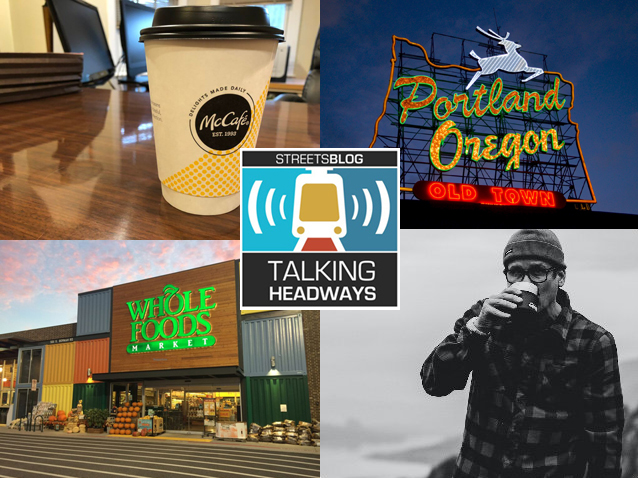This week, we’re joined by Professor Sean Benesh to talk about his new book, "Intro to the City: 150 Observations to Understand the City" (Intrepid). In a broad conversation that touches on pre-Colombian cities and how being an ordained pastor connects to his urban thinking, we mostly learn about how unwelcoming our public spaces are to non-White people in this country. Benesh is on Twitter at @seanbenesh.
An edited transcript is below the player (in case you like to read not listen), but a full transcript (with some typos!) is available by clicking here.
Here's the short excerpt:
Jeff Wood: You know, you live in Hollywood. And I imagine that when you say that to people outside of Portland, you might get an eyebrow. I’m wondering if you could explain this relatively unknown neighborhood.
Sean Benesh: It’s called the Hollywood district. It’s in kind of inner Northeast Portland. And it’s just a weird neighborhood, in a good way. It’s an anomaly and a lot of ways. What drew us here after we moved from Vancouver was its walkability. We had lived in Vancouver, as a family of five, without a car, so we had grown accustomed to walkability, transit, and all that. And so when we landed in Portland, we wanted to find a similar kind of a neighborhood.
And that’s how we landed in Hollywood, which is definitely a neighborhood of contrast. So you have, you know, very expensive single-family, detached homes across the street from, you know, multi-story residential housing apartments, where a lot of the units are affordable. And so you have Whole Foods across the street from a Dollar Tree. It’s just a weird contrast. And it continues to be infill with new apartments. So, yeah, it’s just a fun and eclectic (though not in your typical Portland eclectic way).
Jeff Wood: I also enjoyed your case for McDonald’s.
Sean Benesh: Why?
Jeff Wood: You cover this in the book to a certain extent, but kind of the standoffishness of some of the places that you mentioned, the Whole Foods and things like that, the ability of people to go in and create a third place, basically from a McDonald’s, where they can go and get a cup of coffee for a dollar and hang out and, you know, just be. And I think that’s really a good thing to remember that there’s places where everybody can go to.
Sean Benesh: Yes, to me, that’s a theme that comes up a lot when I think about the accessibility of a neighborhood. Like, if it’s all Whole Foods, then really to whom is that accessible? Or who’s that for? I mean, what about having spaces in the city that, you know, that are for everyone doesn’t matter what your socioeconomics are?
Jeff Wood: Yeah. And, like I said, that piece about the students walking into the Whole Foods with you and not feeling welcome. Is that something that happens a fair amount when you go places with your students?
Sean Benesh: Yeah, very much so. Roughly 60 percent, or maybe upwards of 70 percent, of our students are minorities. So when we go out and do walking tours, I really learn from them, particularly learning how students of color see and interact and experience the city. So when I go into a Whole Foods with four young Hispanic women, about 10 feet in, they kind of just stop. And they’re like, "Ah, this is kind of weird. Like there’s no one like us."
Or when I take my group on the coffee tour and we walk into a very well-known beloved Portland roaster, and, you know, my students are kind of squirming. After, they say, "Everyone’s looking at us like we’re out of place. There’s no one like us." So again, it just gets me thinking about like how to see the city from other people’s perspectives and how much that I’ve missed as well as kind of that conversation about a McDonald’s is like, some places are more welcoming, not just welcoming in terms of socioeconomic, but even in ethnicity as well.






